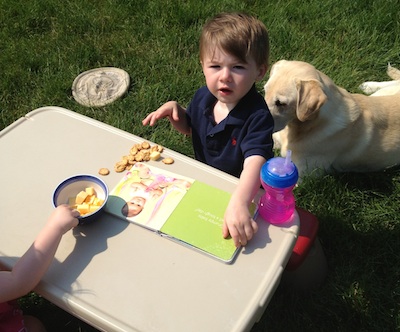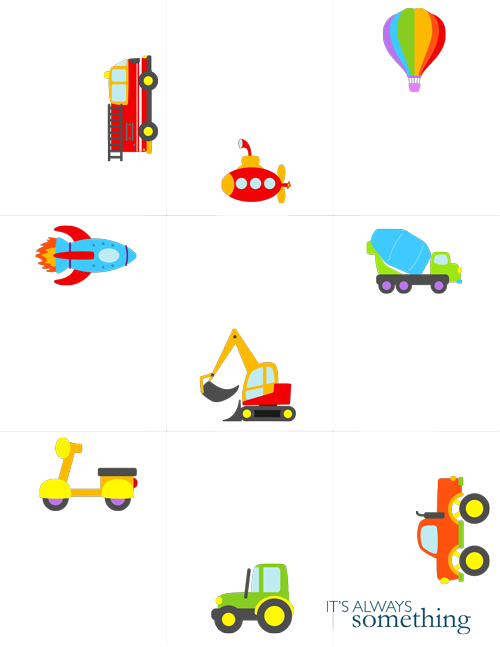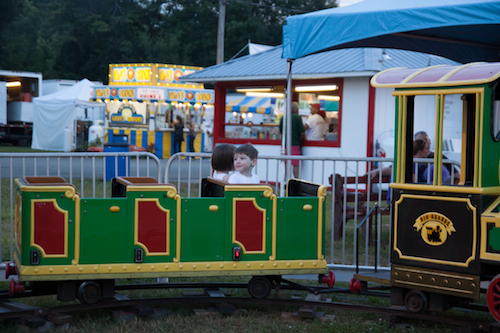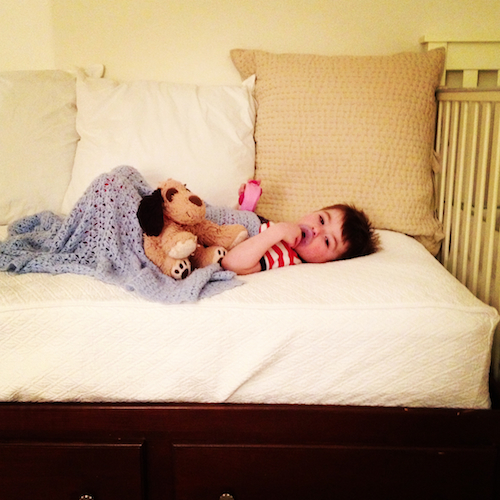My friend Heather recently wrote a post about the possibility of her (ridiculously cute) daughter undergoing an EI evaluation and since that seems to be a hot topic among those of us with 12-24 month olds I figured I should write about Ryan’s recent evaluation and our experience. It is hard to be the momma. I find myself always worrying about whether the kids are meeting milestones or falling behind, and I know I’m not alone in that worry.
Ryan was actually tested early, even by EI standards, after I spoke to our pediatrician at his 15 month well baby. At that point Ry had literally NO WORDS. Not even mama or dada. He grunted and groaned and made high and low pitched squeals. He did manage to say mumumumum, but it was more of a rambling babble and not even remotely directed at me. What I found to be the main issue though was that his lack of language acquisition and his inability to express himself was manifesting into negative behaviors like hitting, kicking and biting.
When my pedi heard that he had no verbal language and he was acting out he suggested that we get in for an evaluation, but warned us that it is hard to qualify for services and that Ry may not meet the requirements. Especially given his age.
In our state and county, early intervention is paid for by the state. I think in some ways this makes it harder to qualify for services since the budgets are already stretched quite thin. But it does allow access to programming and help for children of all income families.
I was given a number for a state agency and I was assigned a case worker. About a week after I contacted her office she received the prescription for the evaluation from my pediatrician. But by then we had already set up our initial meeting to review paperwork and ask/answer questions. The case worker came to our house to meet me and she was lovely. She took a lot of time to explain the process to me and answer my questions and then she allowed me to select a local agency who would send over a speech pathologist to come and evaluate Ryan in our home.
From the initial phone call to Ryan’s in-home evaluation was a period of less than three weeks. The evaluation was very underwhelming. The speech pathologist played with Ryan using toys already in our living room as well as toys she had brought. I say it was underwhelming because I expected him to have to take some sort of physical challenge test or jump through hoops or something. But it was just the three of us sitting in the living room playing with toys while I answered her questions.
Even though Ryan was completely lacking in expressive vocabulary at the time of his evaluation he did not qualify for services, which wasn’t surprising after I read the full report. He was evaluated at 15 months and 25 days old. In his full report he was evaluated on problem solving, personal-social skills, gross development, fine motor development and communication.
Ry’s ability to place objects into containers, scribble on paper, dump objects out of a box and play with puzzles earned him a gold star in problem solving and cognitive development. All joking aside, I didn’t even realize these were qualifications for verbal speech development.
His ability to use a spoon at mealtime, help get himself dressed (i.e. lift up his arms so you can take off his shirt, etc.), parallel play and pull away from me to go play with a toy he wants showed he had developed personal-social skills. He also demonstrating this by showing a close bond with me and by offering the speech pathologist toys to play with. So adorable, by the way.
Walking, climbing on furniture, and squatting to play qualified him the area of gross motor development. And turning the pages of a book, throwing a ball, stacking toys, completing puzzles and feeding a baby doll using a spoon qualified him in the area of fine motor development.
In terms of communication there are two evaluation areas — receptive and expressive language. Receptive language qualifiers were his ability to point to pictures in books, locate objects/toys upon request, follow simple instructions (i.e. give monkey a kiss) and respond to his name being called. Expressive language was the area in which I expressed the most concern (and frankly, it was the only area that I thought would be a focus for a speech evaluation…). But he passed in this category based on his ability to use low and high pitches and attempting to sing Old MacDonald (“e-i-e-i-o”).
The recommendation is to reevaluate him at 21 months if he doesn’t have true words or the ability to label people/objects; use b and m sounds paired with vowels (i.e. mama, baba, ball, etc.); imitate simple words; and produce a variety consonant-vowel combinations.
Ryan is now 17 months and 7 days old and he has two words, neither of which are used regularly — shisha (sister) and (isch) fish. He can say mumumum and dadada. But doesn’t direct either at Joe or I. After the evaluation, I feel kind of relaxed about this all. He was a late sitter upper, a late crawler, a late walker (at nearly 16 months) so the fact that he’s a late talker is not a shocker. We took the advice of the evaluator and started the kids on sign language. I bought them the four Baby Signing Times DVDs. Ironically it’s caused a small language explosion in Reese. But both babies have significantly benefitted from learning signs as a mechanism for communication. Ry is very good at signing more, eat (and tapping you and then signing eat to let you know he needs a snack LOL), all done, milk, balloon, ball and lots of other helpful and cute stuff.
We’re coming up on our 18 month well baby and I don’t even plan on bringing up his language. And frankly, even if we haven’t progressed at 21 months I probably won’t bring it up again then. If by 24 months he still seems to be stuck I’ll push for another evaluation. But I really think he’s just a late bloomer. Anyway, the process was really enlightening and I’m glad we underwent the process. I’m happy to answer questions for anyone heading in that direction. Hopefully our experience can help someone else questioning their own child’s verbal development.




